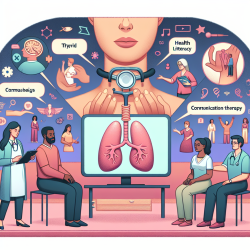The Unseen Potential of Comprehensive School Counseling Programs
As a Special Education Director, the emphasis on comprehensive school counseling programs is not just a regulatory checkbox but a pivotal element in shaping student success across New York. The recent review by the New York State Education Department (NYSED) and the New York State School Counselor Association (NYSSCA) uncovered a startling statistic: only 42% of school districts have a comprehensive program, and a mere 25% of these were updated for the 2023-2024 school year. This gap signifies missed opportunities for many districts to enhance their student support services.
Understanding the Components of a Comprehensive Program
A district’s comprehensive school counseling program serves as the backbone for delivering essential services across all educational levels. Here’s a breakdown of its critical components:
- Vision and Mission Statements: These articulate the district's goals and align with the school counseling vision.
- Professional Ethics and Standards: Following the ASCA Ethical Standards ensures integrity and confidentiality in counseling.
- Standards Driven Counseling: Using ASCA Student Standards to guide curriculum and promote holistic student development.
- Data Driven Counseling: Leveraging data to assess program effectiveness and student outcomes.
- Advisory Council: A diverse council that supports program implementation and reviews.
- Program Descriptions: Detailed descriptions of services at elementary, middle, and high school levels.
Why Vision and Mission Statements Matter
Vision and mission statements are more than just words on paper; they are the guiding principles for school counseling programs. These statements should reflect the unique needs of the district’s students and be aligned with broader educational goals. For districts crafting these statements, the American School Counselor Association (ASCA) offers valuable resources and presentations to aid in this development.
Ethics and Standards: The Cornerstones of Counseling
Adhering to the ASCA Ethical Standards and Professional Competencies is crucial for maintaining the integrity of school counseling services. These standards ensure that counselors are equipped with the necessary skills and uphold the ethical obligations to protect student welfare and confidentiality.
The Power of Standards-Driven Counseling
Incorporating ASCA’s Student Standards: Mindsets & Behaviors for Student Success allows school counselors to foster environments where students thrive academically, socially, and emotionally. These standards help integrate crucial career development frameworks, such as the Career Development and Occupational Studies (CDOS) Learning Standards, preparing students for future success.
Data-Driven Approaches: Measuring Success
Effective school counseling programs rely on data to measure their impact. By collecting process, perception, and outcome data, districts can refine their strategies and demonstrate tangible improvements in student outcomes, such as academic performance and social-emotional development.
The Role of Advisory Councils
Advisory councils, mandated by Commissioner’s Regulation §100.2(j)(2)(iii), play a crucial role in the success of school counseling programs. These councils, composed of parents, educators, and community members, provide essential feedback and support, ensuring that the program meets the diverse needs of students.
Grade-Level Program Descriptions
Comprehensive school counseling programs should clearly outline the unique services provided at each educational level. Here’s a snapshot:
- Elementary School: Focuses on social, emotional, and academic development through individual and group sessions.
- Middle School: Supports academic and emotional growth with activities that promote resilience and decision-making skills.
- High School: Prepares students for postsecondary opportunities with career counseling and academic support.
Linking to School Counseling Plans
Districts must ensure that their comprehensive counseling programs are accessible to all stakeholders. This involves linking individual school plans to the district’s overarching program and making these resources available online.
For more information, please follow this link.










